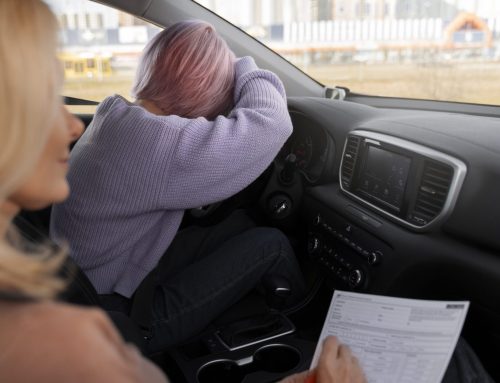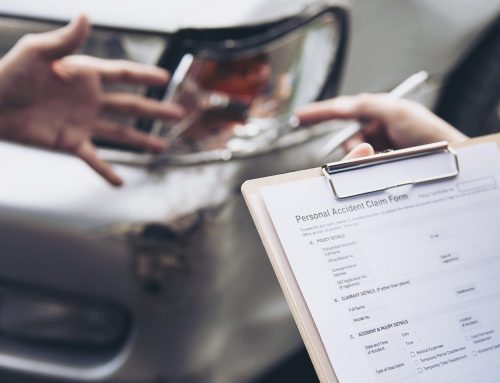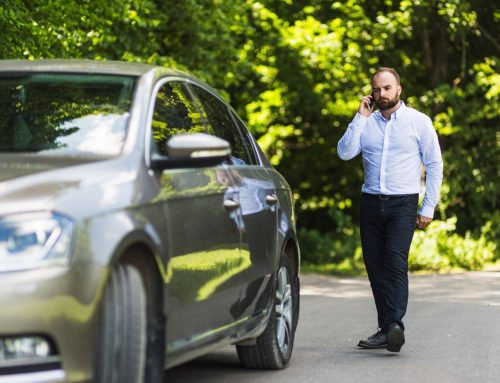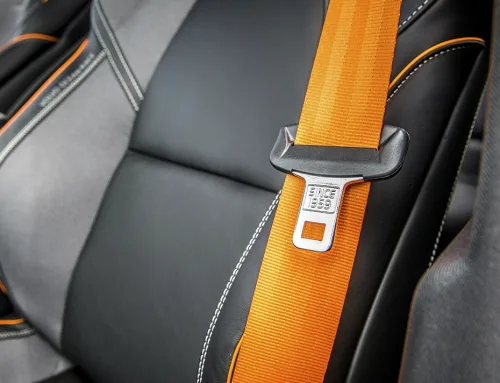In Ontario, getting a speeding ticket can cause a lot of trouble. It’s not just about having to pay a fine. A ticket can affect your driving record, make your insurance cost more, and lead to spending more money than you expected. Before you decide what to do about your speeding ticket, it’s really important to know how challenging the ticket in court works and what could happen if things don’t go your way. This guide is here to help you understand more about what it means to fight a speeding ticket, how likely you are to win, and what you need to think about before you start.
We’ll walk you through the steps of fighting a speeding ticket and give you a good idea of what to expect. This includes looking at why you got the ticket and if you have a good reason to fight it. It’s also about knowing what could happen next, no matter if you win or lose in court. By getting ready for what’s coming and knowing your chances, you can make a better choice about whether to fight the ticket or look for another way to deal with it. Knowing all this helps you protect your driving record and keep your costs as low as possible.
Top of Form
Understanding the Need to Fight
When Should I Consider Fighting the Ticket?
The simple answer is ALWAYS. When thinking about whether to fight a speeding ticket, it’s important to lean towards challenging it, no matter how small or big the issue might seem. Even what appears to be a minor ticket can lead to significant, unexpected consequences, such as license suspensions for G2 drivers or serious hikes in insurance costs. Every ticket has the potential to affect your driving record and, by extension, your financial situation negatively. The truth is, that the hidden repercussions of letting a ticket go uncontested can be far-reaching. Therefore, your first move should always be to explore ways to either completely clear the ticket from your record or, at the very least, reduce its impact. Given the possible long-term expenses and complications that can arise from a seemingly trivial ticket, actively seeking to fight the charge is often the more prudent course of action. This approach not only aims to protect your driving privileges but also safeguards against steep insurance premium increases and other related financial strains.
Learning How to Challenge a Charge
Challenging a speeding ticket involves a few steps. First, you need to notify the court that you’re disputing the ticket before the deadline on the notice. Then, you prepare your case by gathering any evidence, like the officer’s notes or testing records for the specific device used to obtain the speed. On your court date, you’ll have a chance to speak to the prosecutor and try to resolve the case or proceed to trial, where you can present your evidence. The judge will then review the case and decide whether to dismiss the ticket or uphold the charge.
Assessing Your Chances of Success
Contemplating your odds of a favorable outcome is pivotal. Various factors influence this, including the strength of the evidence, the specific circumstances of your case, and the presiding judge’s discretion. Additionally, you might wonder, “can you fight a speeding ticket after the court date?” In most cases, once the court date has passed without proper representation, options to contest the ticket are limited, making early action crucial.
What Happens if You Fight and Lose
If you fight a speeding ticket and lose, the financial and legal consequences can be significant. Alongside paying higher fines due to court costs, you also risk damaging your driving record. Fighting speeding tickets in court requires thorough preparation, as a loss not only affects your wallet but could lead to long-term implications for your insurance premiums and driving privileges. Understanding these potential outcomes is essential before deciding to contest a ticket.
The Need to Pay a Higher Fine Due to Court Costs
An unsuccessful attempt to contest a speeding ticket leads to the requirement of covering not just the base fine but also an increased fine. This situation arises because fines assessed in court on a per-kilometer basis are typically higher than those settled out of court. Consequently, this elevates the overall financial impact of the ticket. It’s crucial, therefore, to carefully consider the balance between the potential advantages of challenging the ticket and the risks associated with a higher financial outlay due to court adjudication. Below is a table that illustrates the difference in fines per kilometer when settled in court versus out of court, highlighting the financial implications of each approach:
| Speed Over Limit | Fine per Kilometer (In Court) | Fine per Kilometer (Out of Court) |
| 1-19 km/h | $3.00 | $2.50 |
| 20-29 km/h | $4.50 | $3.75 |
| 30-49 km/h | $7 | $6.00 |
| 50+ km/h | $9.75 | No out of court settlement |
This table serves as a clear indicator of the financial ramifications tied to the decision of fighting a speeding ticket in court. The increased per-kilometer fines, coupled with additional court costs, underscore the importance of a calculated decision-making process when faced with a speeding violation in Ontario.
Potential Increase in Insurance Rates
Moreover, a conviction for a speeding violation can lead to a surge in your insurance premiums. Insurers view such convictions as indicative of risky driving behavior, which in turn, elevates your profile as a high-risk insuree. This increase can persist for years, compounding the financial repercussions of losing your case.
Is it Possible to Win After Losing?
Even after a conviction, options remain available to mitigate its impact. Filing an appeal is a viable pathway, though it requires a detailed understanding of legal procedures and a solid foundation for contesting the original decision. Alternatively, engaging in driving courses or programs that reflect positively on your driving record could influence future insurance assessments.
Conclusion
Fighting a speeding ticket in Ontario is a process fraught with complexities and potential pitfalls. The decision to contest the ticket by yourself should be made with a comprehensive understanding of the legal landscape, the strengths and weaknesses of your case, and the consequences of both success and failure. Engaging with a professional, such as Traffic Paralegal Services, can provide the expertise and guidance necessary to navigate these challenges effectively, enhancing your chances of a favorable outcome and minimizing the long-term impact on your driving privileges and financial standing.









Leave A Comment
You must be logged in to post a comment.